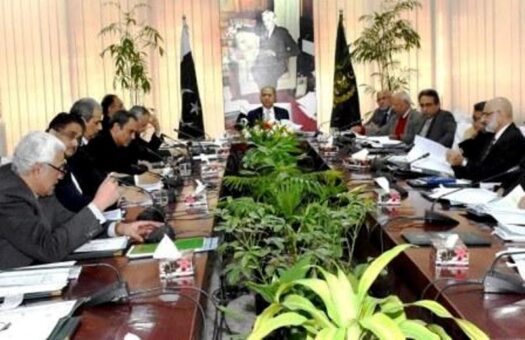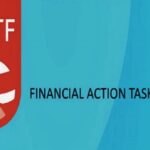ISLAMABAD: Federal Board of Revenue (FBR) on Monday notified draft rules for enrollment in Pakistan Single Window (PSW) for the facilitation of trade and business.
The FBR issued SRO 164(I)/2021 to notify draft amendments in Customs Rules, 2001.
The revenue body invited feedback from the stakeholders within 15 days for finalization of the proposed rules.
According to the draft rules:
“431A. Enrollment in Pakistan Single Window (PSW).- (1) Subject to electronic verification, the subscribers who are required to be enrolled in the Customs Computerized System by electronic means through the Pakistan Single Window (PSW) interface shall, for obtaining unique user identifier (HID), follow the process outlined hereinafter, namely:-
(a) the subscriber shall provide the following particulars through the electronic interface of PSW:-
National Tax Number (NTN), Free Tax Number (FTN) and Sales Tax Registration Number (STRN);
in case of a company Securities and Exchange Commission of Pakistan (SECP)’s Registration Number or Computer-Generated Unique Identification Number (CUIN);
Subscriber identification module (SIM) card number or by such other name registered in the name of the subscriber;
Biometric verification from the National Database and Registration Authority’s e-Sahulat centers;
Email address of the subscriber as appearing in IRIS; and digital bank account number duly authorized by State Bank of Pakistan.
(b) the PSW interface shall through electronic means verify the particulars listed above which may include NTN, CUIN, and SIM card and Bank account number etc. from the concerned authorities and issue One Time Password (OTP) via registered email and SIM card number;
(c) subscription fee shall be charged by the PSW through digital means as per clause (a) of rule 426; (d) the PSW system shall by electronic means issue UID to the eligible subscribers fulfilling the requirements as per clauses (a), (b) and (c) ;
(e) the UID of the subscriber shall remain valid and active for a period of two years or as may be determined, however, a notice not less than fifteen days before the inactivation of the UID shall be given to the subscriber before deactivating his UID, whether through electronic or manual means. The Collector of Customs having jurisdiction may however, immediately deactivate the UID of a subscriber for reasons to be recorded in writing;
A subscriber whose UID got deactivated through lapse of time or persistent not use of not less than two years, shall reapply for subscription in the same manner as a new subscriber applies for UID which shall inter alia include payment of subscription fee afresh;
The subscriber having a valid and active UID shall be entitled to avail all the privileges made available in the Subscription Module of the PSW;
Customs agents as licensed under section 207 of the Act shall be allowed to tie onetime goods declaration in respect of persons having a valid Computerized National Identity Card Number after approval from an officer not below the rank of an Assistant Collector having jurisdiction and provision of the particulars listed in clause (a)-above; and
Any subscribers, not appearing on the Active Taxpayers List of either Income Tax or Sales Tax, shall be allowed issuance of UID, however, during the time of their inactive status they shall not be allowed any exemptions or concessions etc., as the case may be.
(2) The subscriber shall be responsible for the authenticity of the information provided, security of his password, data shared or retrieved from the PSW, ethical use of the system and any failure to exercise due care in the use of PSW or compromising its digital systems or conniving with any person who intend to get unauthorized access to the PSW, shall be liable to penal action under the law for the time being in force. No subscriber shall assign, sublet or allow any person to use his biometric verification, NTN, password, SIM card number or any other particulars under any circumstances whatsoever and such subscriber shall be responsible for using any of his digital particulars for the purposes of subscription only to extent relevant to the PSW interface.
(3) In order to facilitate, educate or assist the subscribers of PSW, the Model Customs Collectorates listed below shall designate an officer not below the rank of an Assistant Collector as Assistant Collector (Facilitation) namely: –
Model Customs Collectorate of Appraisement and Facilitation (East-Karachi)/Quetta/Lahore/Peshawar/Faisalabad;
Model Customs Collectorate Gwadar/Hyderabad/Sialkot/Islamabad/Gilgit: Baltistan; and
Model Customs Collectorate of Enforcement and Compliance, Multan.
(4) This rule shall apply to all the subscribers of the Customs Computerized System through the PSW interface till such time and to such categories of subscribers as the Board may determine.”




